Cara Pheiffer
Director, Proposals
Introduction
In today’s rapidly evolving digital landscape, businesses are constantly seeking ways to optimize their operations, reduce costs, and enhance their technology stacks. One crucial aspect of this evolution is the migration of databases to more modern and cost-effective solutions. One such transition gaining popularity is moving from Oracle to PostgreSQL. Migrating databases is a significant move that can yield substantial benefits, including increased efficiency, improved data quality, enhanced speed, and cost savings. This article explores how easy and compatible this migration process can be, highlighting the benefits of PostgreSQL’s robust features and focusing on the compatibility aspects that ensure a seamless switch.
The Case for Migration
Oracle databases have long been regarded as reliable and powerful, but they often come with high licensing and maintenance costs. PostgreSQL, on the other hand, offers an open-source alternative that boasts similar capabilities without the hefty price tag. Businesses are increasingly recognizing the potential savings and are exploring the transition, but concerns about compatibility often arise.
Enhancing Efficiency through Compatibility
The compatibility between Oracle and PostgreSQL plays a pivotal role in ensuring a seamless migration process. A fundamental aspect of efficiency lies in the easier translation of procedural SQL (PL/SQL) and SQL queries from an Oracle to a PostGreSQL dialect. Both Oracle and PostgreSQL adhere to ANSI SQL standards, enabling a large portion of queries to be migrated with minimal modifications. This compatibility not only accelerates the migration timeline but also reduces the risk of errors and bottlenecks during the transition.
Moreover, PostgreSQL’s rich array of data types, closely resembling those of Oracle, streamlines data migration. This compatibility eliminates the need for extensive data transformation, allowing businesses to maintain data integrity and consistency effortlessly. As a result, the migration process becomes a well-orchestrated maneuver rather than a cumbersome overhaul.
Quality Assurance: Elevating Data Quality
Data is the lifeblood of modern businesses, and maintaining its quality during migration is of utmost importance. PostgreSQL’s commitment to compatibility ensures that data types and conversions are handled with precision. By offering a comprehensive set of data types akin to those in Oracle, PostgreSQL minimizes the risk of data discrepancies, ensuring a high level of quality throughout the migration journey.
Additionally, PostgreSQL’s focus on triggers and constraints simplifies the preservation of data integrity. While there might be minor syntactical differences, the logical consistency remains, guaranteeing that the migrated database adheres to the same quality standards as the original Oracle setup.
Speeding Up Operations: A Swift Transition
In the fast-paced business landscape, time is of the essence. PostgreSQL’s compatibility features contribute to an expedited migration process. The similarities in procedural languages and functions, such as PL/SQL and PL/pgSQL, enable developers to rewrite and adapt code with remarkable speed. The availability of tools like Ora2Pg and PostgreSQL’s native utilities further accelerates schema conversion, data migration, and code adaptation.
Furthermore, PostgreSQL’s replication capabilities ensure minimal downtime during the migration process, allowing businesses to swiftly transition without disrupting operations. Logical replication and streaming replication mechanisms facilitate continuous data synchronization, guaranteeing that the migration process remains efficient and seamless.
Postgres can infinitely scale, process millions of transactions per second, handle high data volumes, and create an unlimited number of nodes in a read cluster, depending on available resources.
Cost-Effectiveness: Saving Resources
The financial aspect of database migration is a significant consideration for businesses. Migrating from Oracle to PostgreSQL can yield substantial cost savings without compromising on quality or functionality. PostgreSQL’s open-source nature eliminates the need for expensive licensing fees, making it an attractive alternative for businesses seeking cost-effective solutions.
The compatibility-driven migration process also contributes to cost-effectiveness by reducing the need for extensive code rewriting and data transformation. The availability of specialized migration tools further streamlines the process, minimizing the resources required for a successful migration.
Conclusion
Migrating from Oracle to PostgreSQL is not merely a technical move; it’s a strategic decision that can drive efficiency, enhance data quality, accelerate operations, and deliver substantial cost savings. The compatibility between these two powerful database systems forms the bedrock of a seamless migration, allowing businesses to embark on this journey with confidence.
As businesses seek to optimize their technology stacks, reduce costs, and improve data management, PostgreSQL emerges as a compelling solution that aligns compatibility with efficiency, quality, speed, and cost-effectiveness. By harnessing the strengths of both databases, organizations can transition smoothly while reaping the benefits of a future-proof, robust, and cost-efficient database solution.



